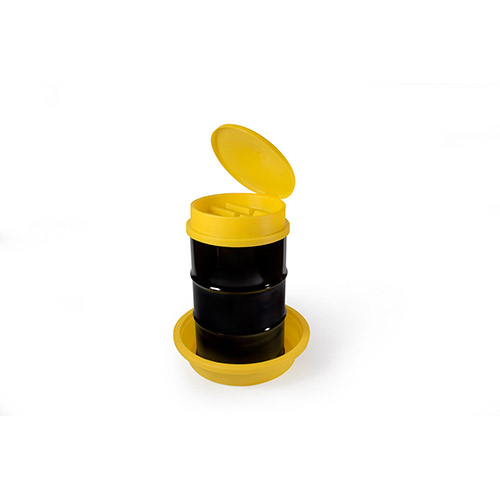Winters in the UK can be long, tough and unpredictable, and some experts are already warning that the winter of 2019 could be one of the earliest and coldest on record. Can you say that your forklift trucks are ready to get to work in the bitter cold and heavy snow? With the worst of winter weather quickly approaching, not to mention busy Christmas schedules meaning any issue is likely to have a greater impact, it’s time to put in place a maintenance programme to keep your business running smoothly over the coming months, whatever nature’s cruellest season throws at it.
By implementing these careful preparations and following the checklist below, you can avoid the problems winter weather brings and ensure your productivity stays high even as temperatures drop.
What are the challenges for forklift maintenance when the weather is colder?
As well as the mechanical and technological preparation necessary to prepare your forklifts for the coming low temperatures and extreme weather, there are wider workplace concerns to take care of too.
Get your staff ready for winter conditions
It’s vital to prepare your employees’ operating forklift trucks for working in the kinds of conditions we can expect to endure throughout the winter months. Heavy rain, sleet and snow plus freezing temperatures create obvious hazards such as slipping or tripping on wet or frozen surfaces. Furthermore, other hazards that occur in cold or snowy weather should not be overlooked, such as the reduction in visibility and fatigue brought on by working in subzero conditions.
Operators should carefully observe the conditions and assess the challenges, and reduce their speeds accordingly. They should be encouraged to take the breaks needed to replenish calories and prevent themselves from tiring too quickly in the cold.
Staff need suitable workwear that can stand up to the extremes of winter weather. Be sure to invest in good quality wind and rainproof clothing, gloves and head coverings, plus hi-vis colours can all make working conditions more tolerable and productive during cold weather.
Prepare the workplace for low temperatures and snow
Have a plan of action ready for when the weather turns bad, including steps to prevent ice building up where you operate forklifts, and stock up on the products you’ll need such as grit and liquid brine, before the inevitable rush when the temperatures really drop.
Make sure the lighting in your workplace has been checked and is strong enough to be useful during a snowstorm. Avoid putting your employees through any maintenance tasks mid-blizzard by checking bulbs now and fixing any small jobs that would be greatly hindered during snowfall.
How to prepare a forklift truck for winter weather
Engine and hydraulics
Sub-zero temperatures can slow or even jam moving parts, so it’s vital to ensure they are always properly lubricated. Remember that hydraulic systems require longer to warm up, so always leave it to idle without a load for a few minutes before starting to operate it. Avoid running the engine for periods of less than 30 minutes.
Batteries
If you run your forklifts using batteries, then it is essential that you keep the batteries in great shape, all year round, to keep your fleet running. Cold weather affects both lead acid batteries and li-ion batteries, both of which are used to power forklifts.
For li-ion batteries, the cold can affect them, meaning they might take longer to charge, or might not take charge in the first place. A simple solution to this is to ensure that where you are storing and charging your batteries is warm enough to prevent this. Keep the batteries indoors, even if your trucks are usually stored or work outdoors.
Check the cables to the battery are undamaged and clean, and make sure the battery is fully charged with a load tester at the start of the day. This can help to manage your batteries throughout the day and get the most from your trucks during this busy Winter period.
Li-ion batteries are usually affected less by the cold weather than lead acid batteries. Cold will literally slow down the reaction in a lead acid battery that is creating its power in the first place. Whilst cold can affect li-ion batteries when it comes to charging, this is easily fixed. Quicker charging for li-ion batteries also means that any problems can be fixed and your trucks will be running again in a short time, should they succumb to the cold.
Whilst this is a busy period for most warehouse businesses, if you have trucks that use li-ion batteries but won’t be used over the Winter, it is worth making sure that the batteries for these are still charged and kept in use. This will ensure that the battery is still in good condition when warmer weather rolls around and the truck is in use again. Leaving the truck standing all Winter might mean it doesn’t start again first time come Spring.
Tires
Check all pneumatic tires for the correct air pressure, and check the tread of all types to make sure they can safely handle icy and snowy conditions. For extra traction against slipping, fit your forklift truck tires with snow chains. Snowplough and grit high volume traffic areas to keep where the forklift operates free of potential hazards and obstacles. Frozen mud, snow and ice are all a threat to the safety of your operator and forklift and there are specially designed forklift attachments to help you spread grit and shovel snow.
Lights
Good lighting is more vital than ever as the nights draw in earlier and the sun rises late. Low visibility becomes a hazard so ensure all lights on your forklift are clean and working properly. It’s recommended that you replace any halogen lights with newer LED bulbs, which are longer lasting, brighter and work much better in cold temperatures.
Cooling system and antifreeze
Use a hydrometer to make sure the coolant is at its best and the antifreeze levels are high enough. Ensure there is no damage to hoses and other parts which could leak otherwise.
Cabs
For forklifts with a cab, check the heaters are working properly, the door latches are well lubricated and the windshield wipers are able to move and can handle the heavy weather. If a forklift doesn’t have an enclosed cab, invest in a forklift cover, and choose a corrugated plastic cover rather than a vinyl wrap which is thin and can tear easily and is less effective at protecting the windshield from rain.
Inspections and services
Extra vigilance around maintenance needs is vital as winter can be especially harsh on chokes and starters. An overall tune up is recommended and daily routine checks should be used to ensure all equipment is in safe working order. Keep the forklift clean, and remove any winter debris after every operation. Mud, ice and snow can quickly build up and cause your forklift to malfunction.
Forklift maintenance checklist
For all trucks, you should check the following:
The log showing the previous day’s faults, identified from the last shift – make sure each fault has been put right before you start the next operation.
Leaks – check the floor, under and beside the truck.
Hydraulic fluid – check the reservoir level.
Mast and carriage, chains and fixing bolts – look for any foreign items or damage or stretching, and make sure they are all properly lubricated.
Forks – ensure there are no cracks, or any signs of wear and tear and check the securing pins are in position.
Backrest or extension – check for debris or damage – bent metal has been weakened and could pose a danger.
Attachments – check they are secure, at the fixing/locking points, and check the connections. Properly trained operators should carry out these checks.
Tyres, wheels and nuts – check for damage, cuts and tyre tread wear. Pneumatic tyres should be checked for the correct pressure. Check wheel nuts are tight and the rims are not damaged.
Seat and seat belt – check the seat is properly fixed to the truck and not damaged or loose, and that the belt is operating correctly.
Steering – check there is no unusual movement or play.
Service and parking brakes – check both feel normal and work efficiently and release correctly.
Operating controls – check all hand and foot controls are functioning correctly and there are no obstructions.
Operating system – if your forklift has digital control systems, make sure they start up properly and function correctly.
Warning lights – check all lights are working correctly and check the user manual if you have any doubts. Don’t use the truck if there is a warning light lit up if you have not checked that it is actually safe.
Gauges and instruments – check they are in proper working order.
Lights and beacon – check they are working properly.
Horn, alarms and other warning devices – check they are all operating correctly.
Safety guards and covers – Check they are all are correctly secured and fastened as a loose cover can pose a hazard to you and your colleagues.
Bodywork – check the vehicle by eye for damage as this can be the first sign of problems with other parts of the truck, including racking. Report any damage to be further checked.
Petrol/Diesel/LPG forklift trucks
Fuel level – check and refuel if necessary ensuring you are away from any fire hazards.
Engine oil – check the level and increase as necessary.
Coolant level – check this and increase if needed.
Battery – make sure it’s clean and secure, and the distilled water level is correct, wearing protective eyewear and gloves.
Fan and other belts – check the tension and for any damage.
Inching pedal – check this is working properly.
LPG bottle security – make sure the bottle is securely fitted and the clamps are properly tightened and all connections are secure.
Electric
Electrolyte levels – check the levels on all the cells.
Cable connections – they should be clean and properly secure.
General cleanliness – ensure the battery area is clean and clear from debris.
Battery security – ensure the batteries are secure within their case and that any protective hatches are securely shut.
Other checks
Any other parts or items to be checked may be listed on a separate sheet so always check with your supervisor. We’ve put together this list as a good guide but it isn’t exhaustive.
If you are looking for a forklift this winter to help with your manual handling then do get in touch.

